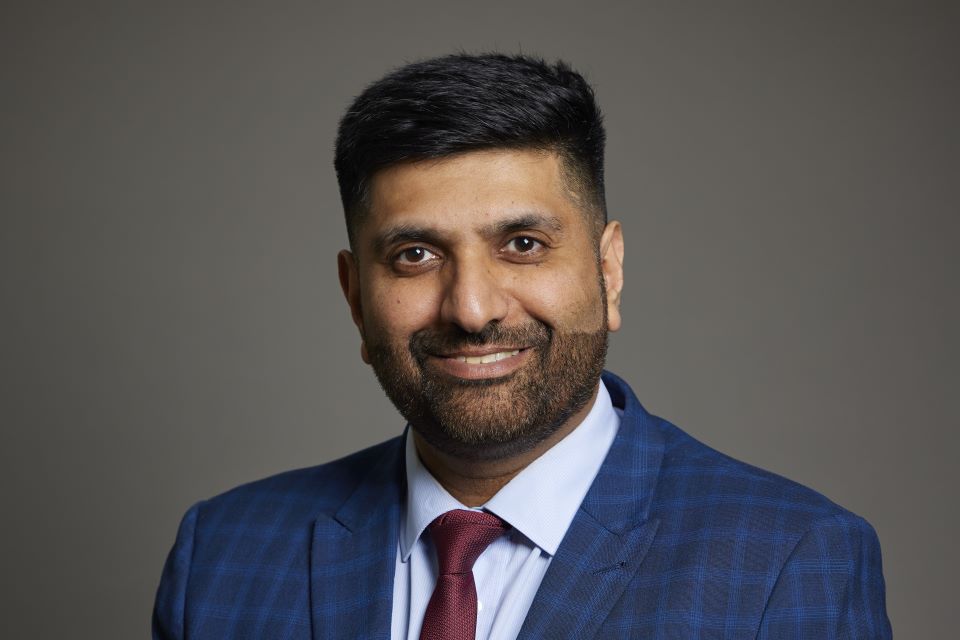International Holocaust Remembrance Alliance London Plenary: speech by Faith Minister Lord Khan
Faith Minister Lord Khan welcomed International Holocaust Remembrance Alliance delegates to London for the second plenary meeting of the UK’s presidency.

I’m delighted to be here at my first IHRA gathering. I know you have all been working hard in your respective working groups and committees.
I would like to extend my thanks to Lord Pickles, chair of the UK Presidency of IHRA. As a Lancastrian, let me say this about Lord Pickles – he’s not bad for Yorkshireman.
You may know that this wonderful House was commissioned in 1825 by the ‘grand old’ Duke of York. York House – as it was then known – was a hub of social and political life throughout the 19th century. However, in 1913, Lord Leverhulme, a Lancastrian, bought the lease for the nation and the house became known as Lancaster House.
IHRA is important to us, especially as it is entrusted with safeguarding the record of the Holocaust. As we approach the 25th anniversary of the Stockholm Declaration it is important to take stock of IHRA’s achievements.
IHRA is perhaps best known for its non-legally binding definition of antisemitism. Many other valuable outputs from IHRA’s work relate to accessing archives, safeguarding sites, and fighting Holocaust distortion. These are just a few of the tools developed by IHRA in partnership with the experts.
IHRA is important because it holds each and everyone of us to account. We all have issues with our history. The problems we face today are more complex and more subtle.
It has been a long process even for democratic countries to confront their own problematic histories. Year on year we see countries rinse their history. Rehabilitate people. Well known antisemites morph into nationalists, become heroes in the fight against communism.
It was only in 1995, that the French Government accepted responsibility for the deportations and deaths of over seventy thousand Jews. And Austria finally dispelled the myth of being Hitler’s ‘first victim’ and made amends to Austrian Nazi victims.
In the United Kingdom and in the United States, we need to come to terms with the fact that we did not open our borders and accept Jews fleeing the Nazis. In the case of the UK, we accepted children but not their parents. Most of the children never saw their parents again.
The institutions of our country did not always respond with compassion and humanity. Even within professional bodies there was significant opposition. Several, including the British Medical Association (BMA) and the British Dental Association (BDA), voiced concerns about allowing foreign doctors and dentists to enter Britain to practise.
No country comes out of the Holocaust clean. That is why we are committed to building a National Holocaust Memorial and Learning Centre in the heart of London, next to the Houses of Parliament. To ensure that future generations remember.
There are also other forms of distortion. As we approach the 80th anniversary of the liberation of Auschwitz-Birkenau, we are increasingly seeing the universalisation of the Holocaust. Public debate in which the unique and distinctive nature of the Holocaust is set aside.
We all recognise the importance of learning how hatred and intolerance can lead to discrimination, exclusion, and even mass murder. And we recognise too – of course – the challenges presented to us by asylum seekers fleeing for their lives.
But with growing frequency the essential story of the Holocaust – the pernicious spread of antisemitism, the widespread indifference, and the genocidal murder of a third of the world’s Jewish population – is obscured or ignored. It is as though antisemitism is no longer a problem and Jews are no longer threatened. Surely, this cannot be the message Holocaust commemoration carries with it.
We have to acknowledge that we live in a post-truth world. But do we live in a post-Holocaust world? The Holocaust continues to have had a deep effect on society both in Europe and the rest of the world, and today its consequences are still being felt.
I wish you well with your plenary tomorrow.